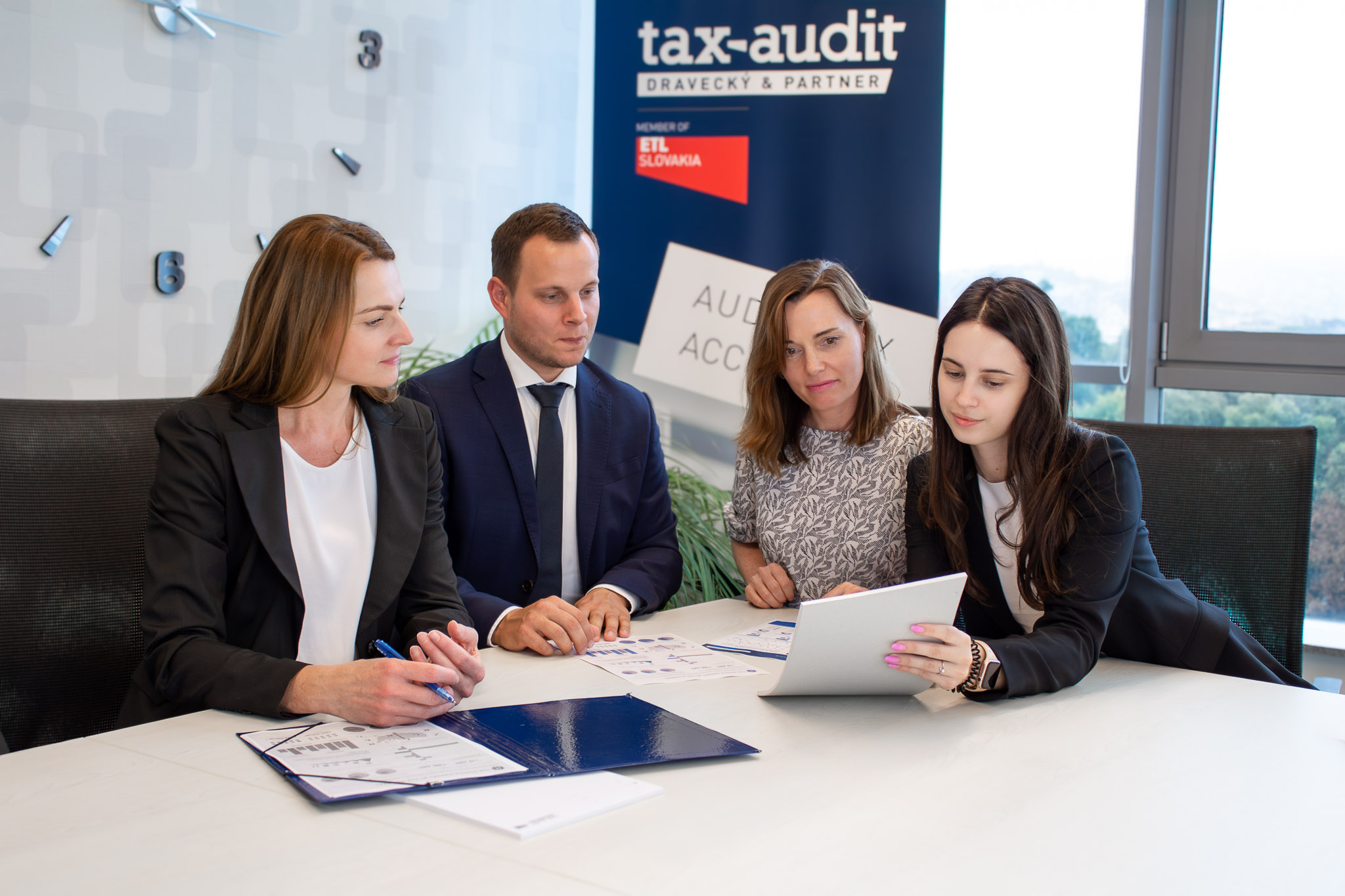Starting a business is a major step, full of ideas, plans, and enthusiasm. However, many entrepreneurs are surprised by the tax and accounting obligations they face right from the outset. For this reason, we have prepared an overview of the most common questions new entrepreneurs ask, along with clear answers to help them find their footing from day one.
1. As a new entrepreneur, when do I need to start dealing with taxes?
The obligation to handle taxes arises almost immediately after you begin your business activities. If a person - a sole proprietor establishes a trade and is entered into the Register of Legal Entities, Entrepreneurs, and Public Authorities from the Trade Register, the tax administrator will automatically register them ex officio under § 67 of the Tax Procedure Code. It is not necessary to submit a registration application. The tax office will then assign the individual a Tax Identification Number (TIN), which they must use in all communications with the tax administrator.
However, if a person begins other self-employment activities within the Slovak Republic (e.g., as an author or consultant without a trade license) or leases property (excluding land), they must register themselves. The deadline for this registration is the end of the calendar month following the month in which the activity commenced.
In addition to income tax, you must also consider other potential tax duties. The most common include Value Added Tax (VAT), motor vehicle tax, and real estate tax. The requirement to register for VAT can arise not only from exceeding the turnover threshold but also from cross-border transactions within the EU (e.g., receiving services from abroad).
Every new entrepreneur should verify which tax registration obligations apply to them at the very beginning. Neglecting these steps can result in penalties. Besides registration, deciding on the method of accounting or record-keeping is also crucial. All of these initial decisions have a significant impact on the future operations of the business.
2. Do I have to become a VAT payer immediately?
No. The obligation to register for VAT arises only after exceeding a turnover of €50,000 within a calendar year unless the law specifies otherwise. In special cases, the registration obligation may arise instantly, for instance, if a taxpayer's supply of goods exceeds a turnover of €62,500 in the current calendar year, making them a VAT payer automatically at the time of the supply.
However, you should also be aware of the "quick registration" options under § 7 or § 7a of the VAT Act:
- § 7: Registration due to acquiring goods from another EU member state if the value of these acquisitions reaches €14,000 in a calendar year.
- § 7a: Registration when receiving or providing services to or from other EU member states if the entrepreneur is involved in cross-border transactions.
If you are not a VAT payer but provide services to a business in another member state, you must register under § 7a before the service is provided.
Voluntary registration is possible at any time, for instance, if you plan to do business with VAT payers and wish to claim VAT deductions. It can also enhance your credibility with business partners.
3. Is it better to start as a sole proprietor or establish an LLC right away?
The choice depends on several factors:
4. How are profits taxed?
Taxation depends on the business's legal structure:
Sole Proprietor:
- Income Tax:
- 15% on annual income up to €100,000.
- For income over €100,000 annually:
- 19% on the portion of the tax base up to and including €48,441.43.
- 25% on the portion of the tax base exceeding €48,441.43 (figures valid for 2025).
- Social and Health Insurance Contributions:
- Health Insurance: 15% with no maximum assessment base.
- Social Insurance: 33.15% with a maximum monthly assessment base of €15,730.
LLC (legal entity):
- Corporate Income Tax:
- 10% on taxable income up to €100,000 annually.
- 21% on taxable income from €100,000 to €5,000,000.
- 24% on taxable income over €5,000,000.
- Withholding Tax on Dividends:
- 10% on dividends paid from profits generated in 2024.
- 7% on dividends paid to natural persons from profits generated from January 1, 2025.
5. Are there tax reliefs or optimization tools for startups?
Yes. Available options include:
- Deductible Tax Expenses: The most common include costs for equipment, rent, marketing, software, legal and accounting services, and payments to external suppliers.
- Tax Loss Carry-forward: Startups that are not profitable in their early years can deduct these losses from their tax base over the next five years.
- Super-deduction for Research and Development: This is a preferential tax incentive for companies investing in innovation, software development, new technologies, or processes.
- Lump-sum Expenses: Sole proprietors (who are not VAT payers) can claim lump-sum expenses at 60% of their income (up to a maximum of €20,000 per year) instead of itemizing actual expenses. This method significantly simplifies record-keeping and can lower the tax burden.
- Grants and Subsidies: This income can be tax-exempt if the conditions under the Income Tax Act are met. It must also be accounted for correctly.
- Reduced Contributions: In certain situations (e.g., for students, and individuals with disabilities), contribution reliefs or exemptions are available.
Every startup should consider the right combination of these tools based on its specific focus and goals.
6. How should I properly maintain accounting and records?
Proper accounting depends on the legal form of your business:
- Sole Proprietors: May choose to keep tax records, single-entry accounting, or double-entry accounting.
- LLCs and other legal entities: Are required to maintain double-entry accounting following the Act on Accounting.
Accurate bookkeeping is essential for accurate tax return preparation and for any potential tax audits. Collaborating with a qualified accountant and using reliable accounting software is highly recommended.
7. How should I structure remuneration for startup founders?
Founders of an LLC have several legal options to withdraw funds from the company:
- Executive Director Service Agreement: This income is subject to income tax as well as health and social insurance contributions.
- Employment Contract with the Company: A standard employment relationship with all associated tax and contribution obligations.
- Distribution of Dividends: This is possible only after the company's profit has been taxed and the financial statements have been approved. Dividends paid to natural persons are taxed at a 7% rate.
Each of these options has different tax and contribution implications, so it is important to consider the most suitable remuneration method for your specific situation.
8. When is it worthwhile to work with a tax advisor?
We recommend doing so before you even start your business. A tax advisor can:
- Help you choose the optimal legal structure for your business.
- Advise on accounting and tax planning.
- Protect you from errors that could lead to future penalties.
Do not underestimate the importance of your tax setup at the beginning of your business journey. A solid foundation saves time and money, reduces stress, and gives you the peace of mind to focus fully on what you do best: building your startup.
Be the first to know about the latest information from the world of taxation, accounting and auditing.













































